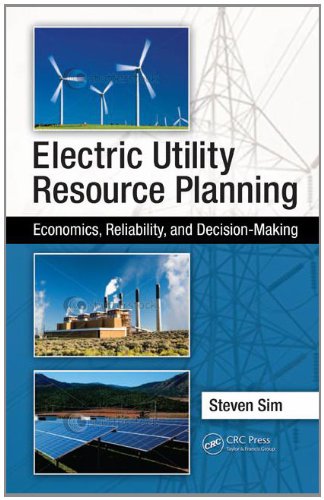

Most ebook files are in PDF format, so you can easily read them using various software such as Foxit Reader or directly on the Google Chrome browser.
Some ebook files are released by publishers in other formats such as .awz, .mobi, .epub, .fb2, etc. You may need to install specific software to read these formats on mobile/PC, such as Calibre.
Please read the tutorial at this link: https://ebookbell.com/faq
We offer FREE conversion to the popular formats you request; however, this may take some time. Therefore, right after payment, please email us, and we will try to provide the service as quickly as possible.
For some exceptional file formats or broken links (if any), please refrain from opening any disputes. Instead, email us first, and we will try to assist within a maximum of 6 hours.
EbookBell Team

4.7
16 reviewsMost people—including many legislators, regulators, and other decision makers in the electric utility industry—have misconceptions about how electric utilities really "work" and plan for the future. This lack of understanding can lead to poorly informed decisions and policies that directly affect the choices utilities must make.
Using easy-to-understand text and examples, Electric Utility Resource Planning: Economics, Reliability, and Decision-Making clarifies how utilities operate their systems and prepare for the future. This explanation will show readers that both expected and counterintuitive results can occur (i.e., conservation might result in higher air emissions, or lowering costs could lead to higher electric rates).
Taking readers step by step through this process, the book (in the following order):
In addition, the author introduces four Fundamental Principles of Resource Planning that should guide utilities. He also offers opinions on how certain trends in utility regulation and legislation can hinder utility planners’ efforts to identify and select the best resources for the utility’s customers.
With this book, author Dr. Steven Sim applies his experience and insights from more than two decades of resource planning for Florida Power and Light (FPL). As one of the largest utilities in the United States, FPL has faced a multitude of resource planning challenges, and Dr. Sim has performed and supervised thousands of analyses designed to meet these obstacles. He has also served as an FPL witness in regulatory hearings on a wide variety of topics, ranging from the economic implications of nuclear, conservation, coal, gas, and other resource options, to the non-economic impacts (air emissions, fuel usage, system reliability, etc.) they present.